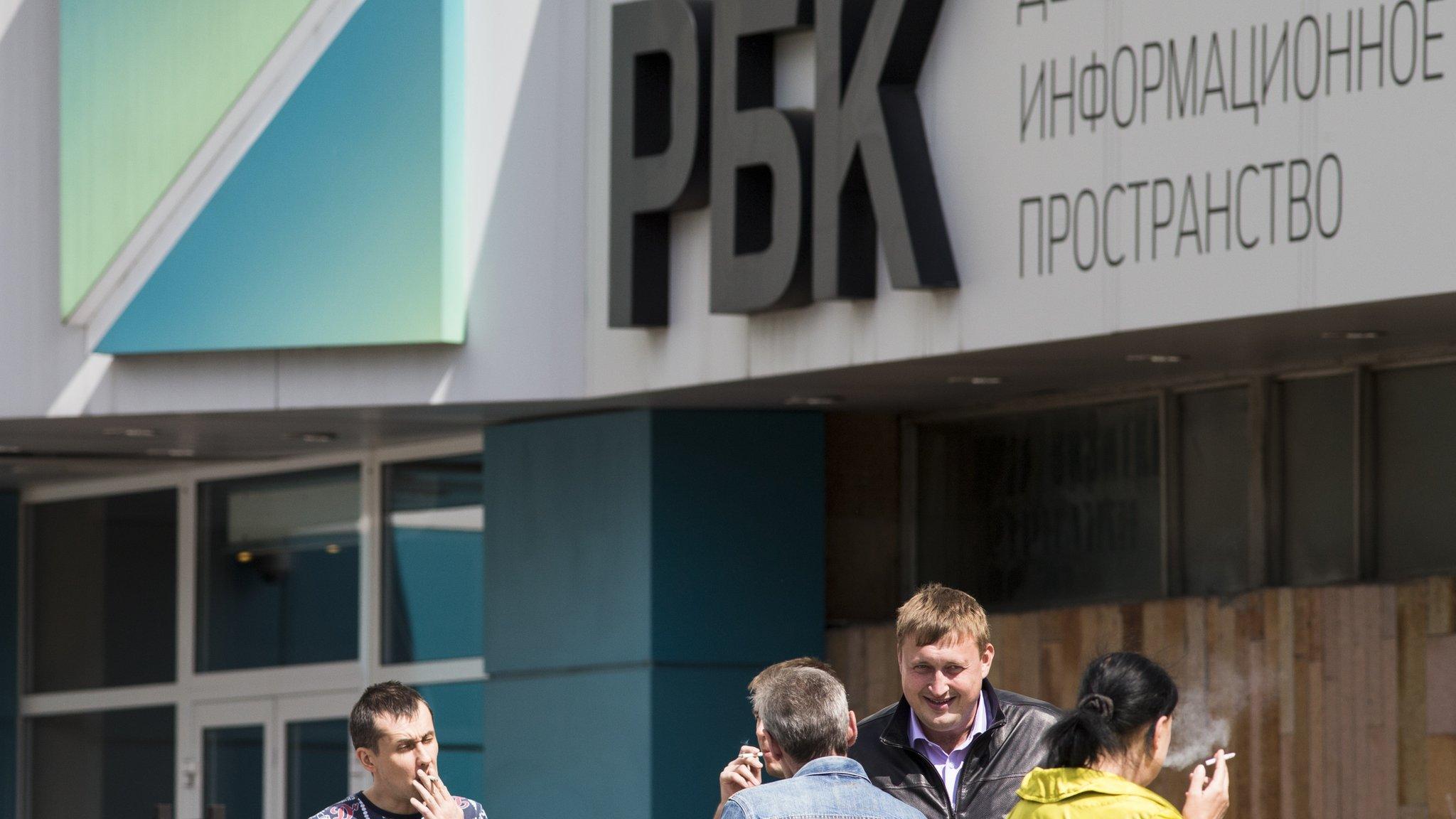UK MPs make rare trip to Russia amid freeze in relations
- Published
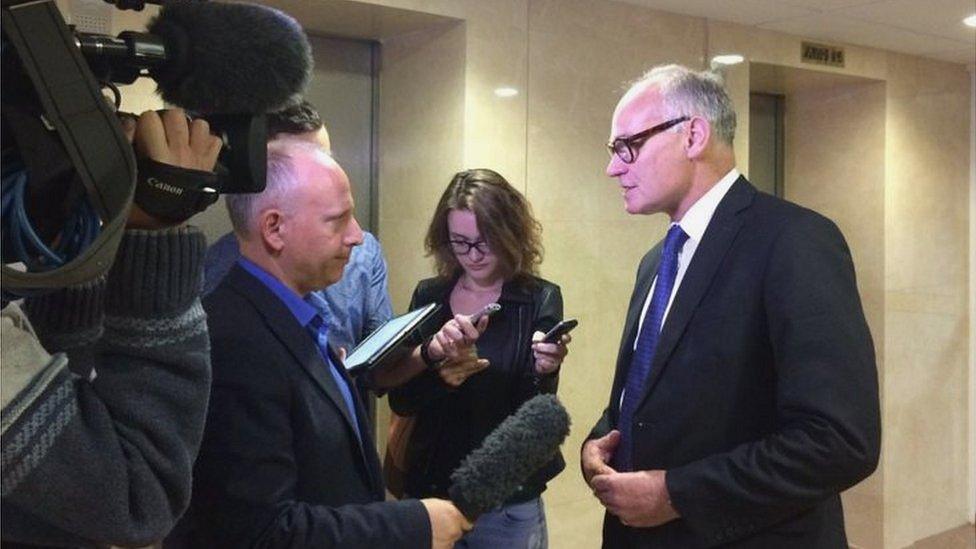
Crispin Blunt (R), one of five UK MPs visiting Moscow, is interviewed by Steve Rosenberg in parliament
UK-Russian relations have been in the deep freeze for some time.
The list of reasons is about as long as a Russian winter and includes Russia's annexation of Crimea, Western sanctions against Moscow, differences over Syria and the murder in London of former Russian agent Alexander Litvinenko.
UK Foreign Secretary Philip Hammond has been outspoken in his criticism of Russia; Russian officials have been outspoken in their criticism of Philip Hammond.
Touche.
But is the UK government's approach to Russia the right one?

In the deep freeze
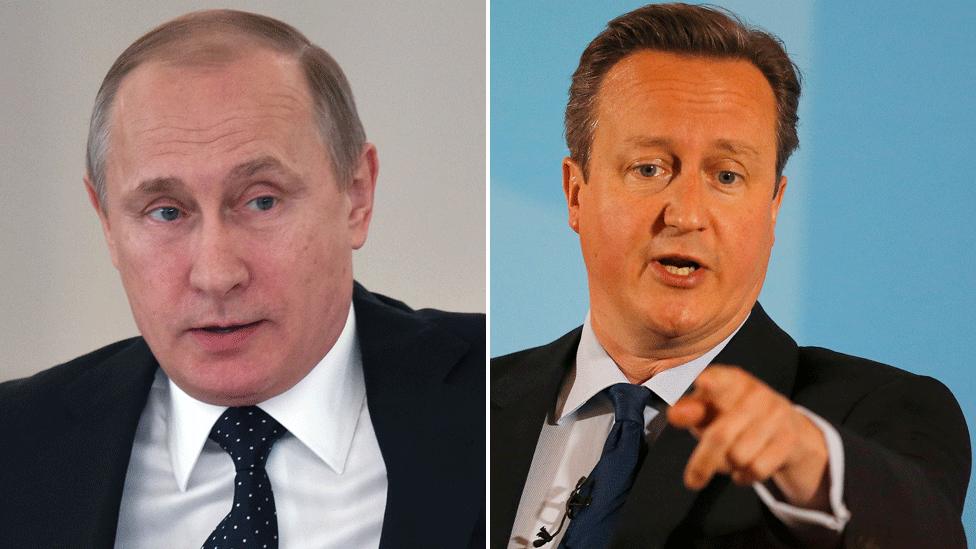
Prime Minister David Cameron suggested on Tuesday that President Putin might be happy if the UK voted to leave the EU

Last December the Commons Foreign Affairs Committee launched an inquiry into Foreign Office (FCO) "policy towards Russia and the broader UK-Russian bilateral relationship".
It aims to explore the scope for co-operation with Moscow in areas of shared interests, to examine whether the FCO has the "necessary understanding of Russia's internal politics" and evaluate the state of economic ties between Moscow and London.
This week five MPs from the Foreign Affairs Committee are on a fact-finding trip to Russia. They are meeting political figures, civil society and human rights groups, as well as British businessmen.
We caught up with the group at the lower house of the Russian parliament, the Duma. They had been invited to a closed-door session with counterparts from the Duma's foreign affairs committee.
This was a rare event: political contact between Moscow and London.
"The purpose is to understand the Russian perspective," the committee chairman, Conservative MP Crispin Blunt, told me after the meeting.
"The state of our relationship is so poor that one is seeking out areas of common ground, there's common interest in the fight against Islamic State.
"But at the same time we also need to make sure we understand each other about the difficult issues, the things that have gone wrong in our relationship both in the last couple of years with respect to Ukraine, but also over two decades since the end of the Cold War."
'Flawed sanctions'
High on the agenda is the economic relationship. So, is there a "common interest" on the part of Moscow and London to remove sanctions?
Crispin Blunt told me that "the effectiveness and purpose" of Western sanctions against Russia "are something we're going to have a look at".
Later, at a meeting in Moscow with British businessmen, his Conservative colleague Daniel Kawcynzski tweeted, external: "British companies telling me EU sanctions against Russia are ineffective and flawed".
The head of the Russian parliament's foreign affairs committee, Alexei Pushkov, said the UK MPs had told him that Britain was suffering from Russian counter-sanctions. For example, British farmers were no longer able to sell their beef on the Russian market.
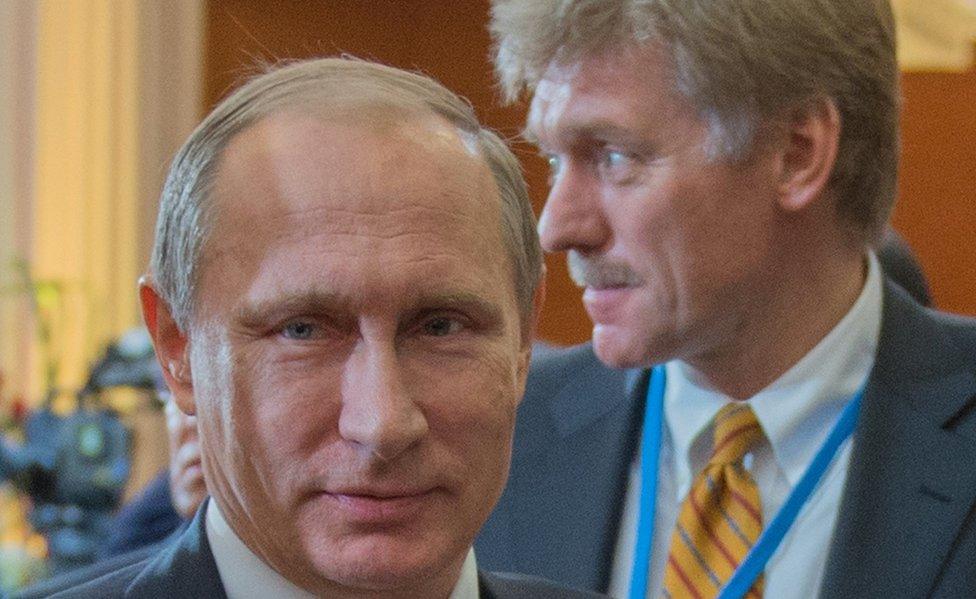
President Putin's spokesman Dmitry Peskov (R) said Russia wanted to revive "deplorable" relations with the UK
"They asked me what can the UK do to improve the atmosphere between Russia and the West?" Mr Pushkov said.
"My response to them was this: adopt a more moderate position on sanctions. Don't follow in the footsteps of those countries which use naked Russophobia to exercise influence in the Western alliance, like Poland and the Baltic States."
The message from Moscow is clear: you scratch our backs by easing sanctions, and we'll scratch yours.
With EU sanctions against Russia up for renewal next month, it is a message Moscow is pushing hard.
"We are extremely interested in improving relations," Kremlin spokesman Dmitry Peskov told me. "Russia has on many occasions demonstrated it is prepared to show flexibility. But this flexibility has its limits."
In other words, there are key issues over which Moscow will not compromise for the sake of improved ties with the West: for example over the status of Crimea.
Neither does the UK government seem prepared to "park" its political disagreements with Russia to boost economic relations.
A fact-finding mission by MPs may reflect a desire by some for compromise. But it does not signal a change in Britain's official policy towards Russia.
- Published19 December 2014
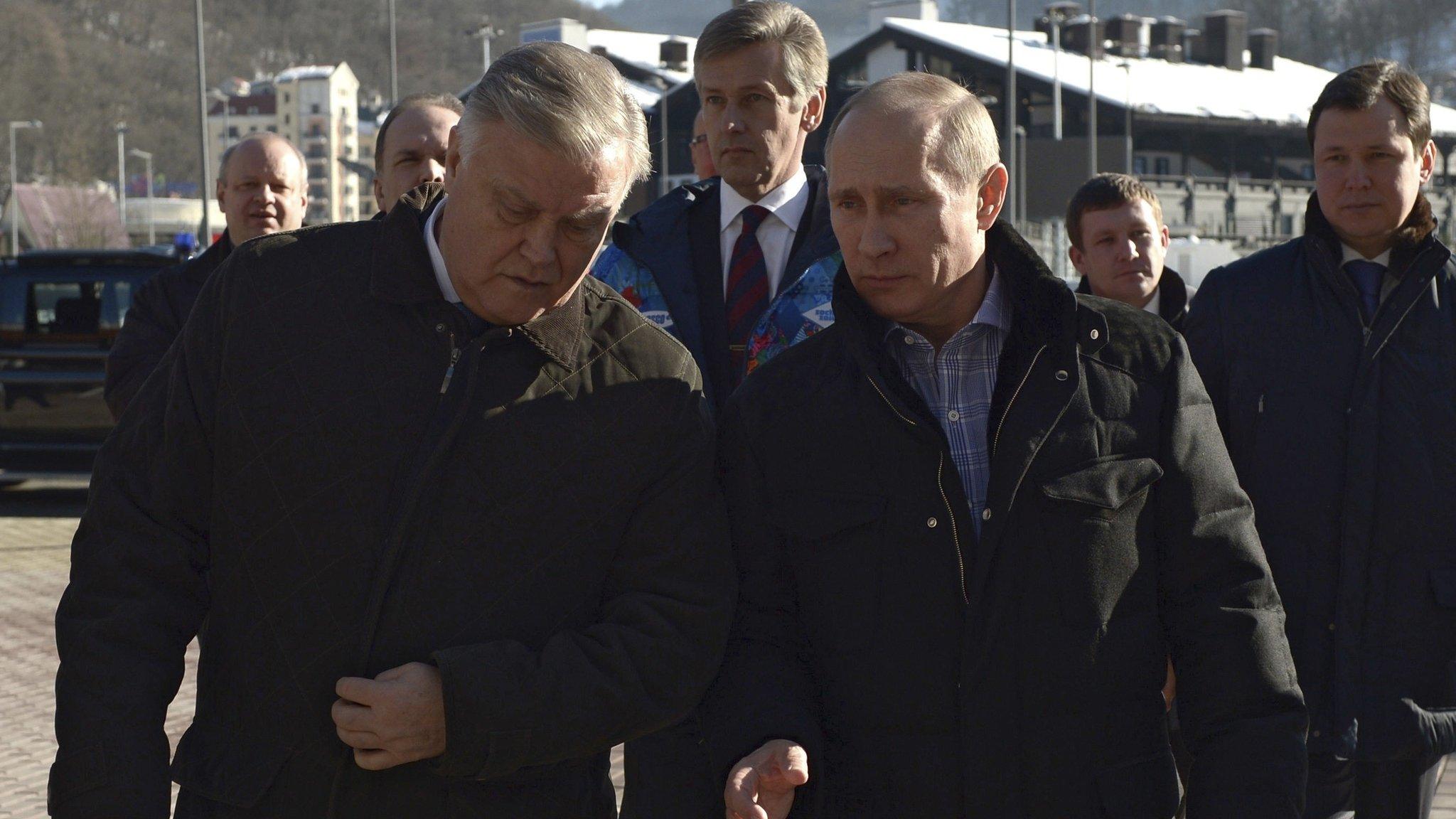
- Published6 May 2016
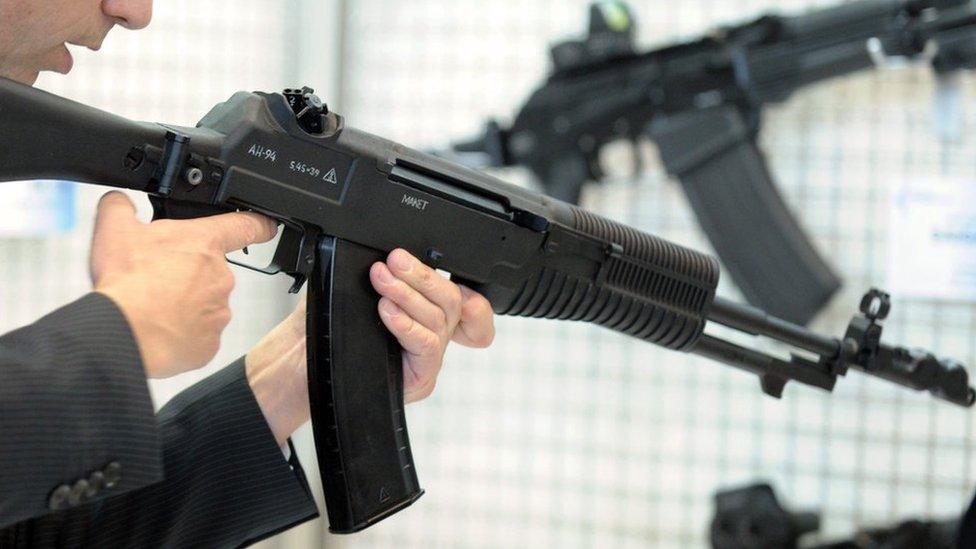
- Published14 December 2015
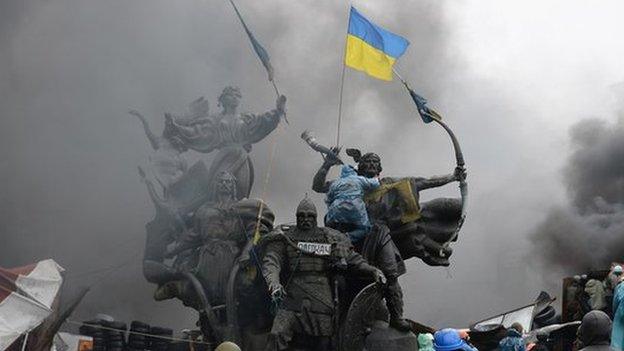
- Published16 May 2016
